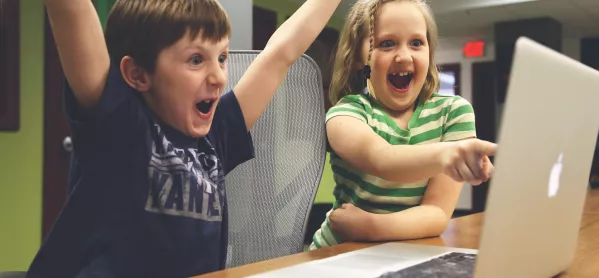A child’s right to an education is something many of us almost take for granted. Yet the rights of a child are vital: we must shout out and let children know they have a right to be safe, a right to learn, a right to be loved, to own their own property.
There’s something else to consider, however: are children’s rights free of responsibility and duty?
As a teacher, friends often ask for help and advice, and there is one common source of frustration. Time and time again I hear variations of this phrase: “My child would do his homework, but he never gets off that bloody Xbox!” (Sometimes it’s a different console, but you get the point.)
It is the child’s right to play these games, isn’t it? It is the child’s right to choose how much effort goes into their schoolwork, yes? The child has a right to own property, haven’t they? Even if it is a games console that appears to be killing his or her chances to learn?
Talking point: Should children have more say over what they learn at school?
25 priorities for improving children’s lives: Stop seeing poor children as ‘tragic’
Profile: Children’s rights campaigner Beeban Kidron
Everyone has their own issues with what their children do with their time, and it is hard to get the right balance. I personally hate the Xbox (only partly because I am awful at computer games). But I have friends and colleagues who are well-rounded and play consoles instead of watching the TV: it isn’t an bad thing in itself, which brings the focus back to parenting skills and balance in life.
The balance of rights and responsibilities
Reflecting on all this gave me some real food for thought. There isn’t a parent out there who doesn’t want the best for their child; a games console isn’t a bad thing in itself and many people get the balance right. Parenting isn’t the easiest gig in the world - as the console issue and countless more like it show us - and, as teachers, we should be there to work with families to help them in the quest to get things right for their children.
Children’s rights are so important and our task - trying to help to get the right balance for every single child we ever work with - isn’t an easy one. And how does this look in practice in our schools? We can’t order parents to sell that Xbox or smash up the router at home; many parents like to use online gaming as a stress reliever, so why not children? We can’t lock a child into a room and force them to learn. Yet we can’t avoid these issues either: parents often look to us for guidance in school, in the streets or on the sides of the football pitches at the weekend.
There is a lot of off-putting jargon around the rights of the child, in schools and government publications alike. But we’ve got to look beyond that: children must learn about their rights and responsibilities if they want to become the best version of themselves.
As teachers, helping them to do that is one of the most important tasks we have.
Eddie White is a maths teacher in Scotland




